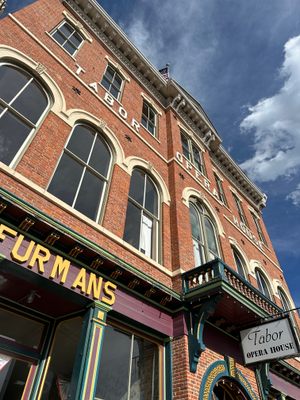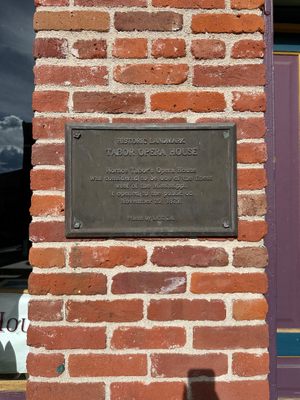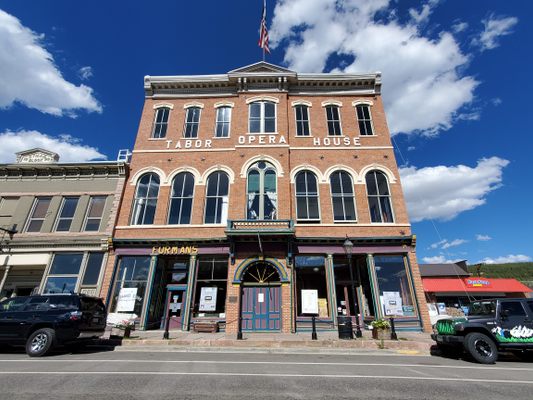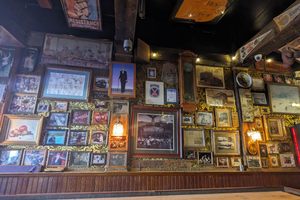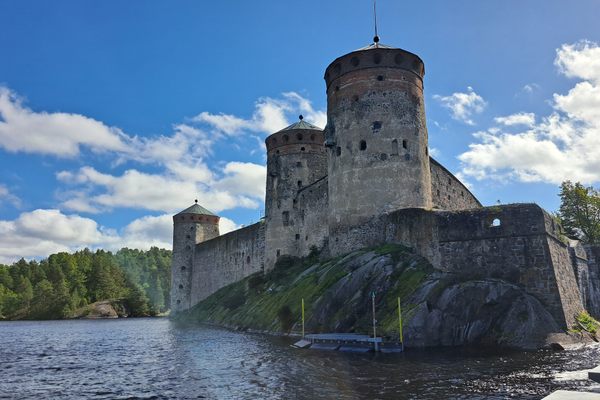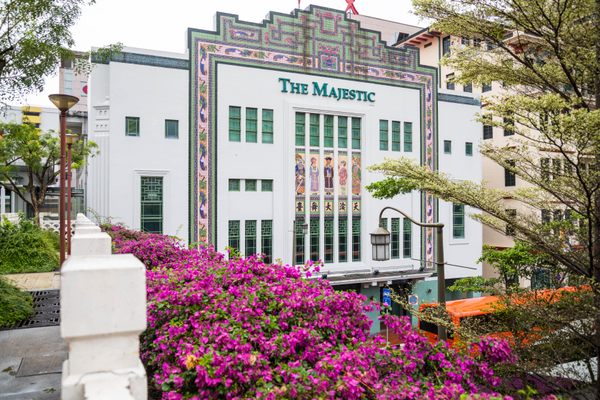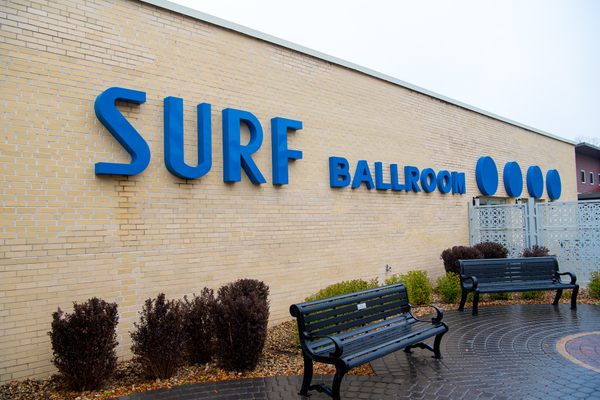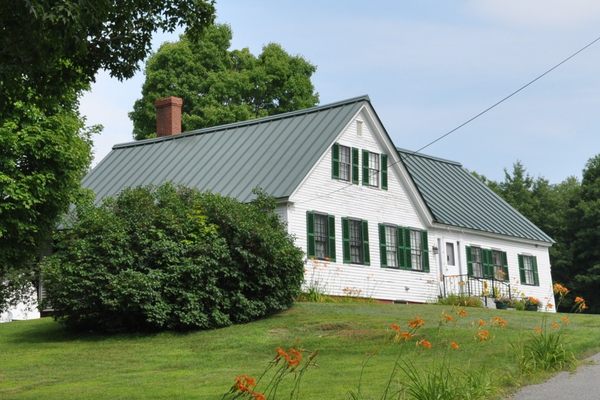About
The Tabor Opera House was almost lost. The 19th-century building was set for demolition in 1955, which would have meant saying goodbye to the once-vibrant landmark forever. Rumor had it that the new owners of the building were about to pave paradise, and quite literally put up a parking lot. And as those whispers grew louder, Evelyn Furman knew she had to do something. “It seemed so important to save the opera house,” she told an Associated Press reporter in 1981. “That I talked my widowed mother into buying it.” Using her life savings, plus a little extra, Florence Hollister became the owner of the time-ravaged building.
By the 1950s, it was probably easy to forget what the grand building had once been. When the Tabor Opera House was built in 1879 by mining magnate Horace Tabor, it was advertised as the “finest playhouse west of the Mississippi,” according to its write-up in a Federal Writers Project guide to Colorado. It was “first class in every respect,” from 16-inch solid brick walls to hand-painted stage curtains. It also boasted the first gas lights in Leadville, and was rumored to cost over $35,000 (equivalent to nearly $1 million in today’s dollars). Not bad for a place that only took 100 days to build.
That quick construction is even more impressive when you consider that Tabor, unsatisfied with the quality of materials available in Leadville, has materials brought by wagon over some of Colorado’s most treacherous landscapes. But in just a little over three months, the theater became a reality.
Its first show, however, wasn’t nearly as spectacular as the building’s construction. It opened with a double feature of The Serious Family and Who’s Who. Unfortunately, the opening took place two days after vigilantes had hanged two men just steps away from the theater, and as reported in the FWP guide, “the hushed and uneasy town was in no mood for frivolity.”
That troubled start didn’t prevent the Opera House from becoming a destination for some of the era's most notable stars. Acts like Oscar Wilde, Buffalo Bill, and the Zigfeld dancers crossed the stage. It’s even rumored that magician Harry Houdini once performed his disappearing act there via a trap door in the stage.
But as they say, all good things come to an end. Tabor’s fortune was tied to the area’s booming mining industry, and by 1881, silver had hit all-time lows. By 1893, nothing was quite the same. That year, Tabor sold the Opera House for just $32,000.
The opera house went through a number of owners over the years before Furman and her mother took ownership. At the time she operated it, Furman kept the history of the opera house alive through her work and by publishing three books on its history. As she told a reporter in 1981, “There is no one left to tell the stories but me.”
Luckily, she was wrong about that. Some stories just have to keep being told. In 2016, the city of Leadville bought the opera house and began restoring it to its former glory. The first stages of a planned renovation began in 2020, and in the course of that work, another treasure was discovered—a collection of hand-painted scenery from 1879 to 1902 that had been forgotten in storage for over a century. “The history of the Tabor Opera House is utterly fascinating,” said Jenny Buddenborg, president of the opera house’s preservation foundation, in a 2021 article in the New York Times. “And the fact that we can physically share it through the historic building and stage scenery is remarkable.”
Related Tags
Community Contributors
Added By
Published
December 15, 2021
Sources
- https://www.google.com/books/edition/Colorado_a_Guide_to_the_Highest_State/EBmv2pnmNyIC?hl=en&gbpv=0
- https://books.google.com/books?id=h-5eAAAAIBAJ&pg=PA16&dq=%22tabor+opera+house%22&article_id=5017,10198073&hl=en&sa=X&ved=2ahUKEwiqysyTquH0AhWYkIkEHTcuAp0Q6AF6BAgCEAI#v=onepage&q=%22tabor%20opera%20house%22&f=false
- https://www.nytimes.com/2021/08/11/arts/music/opera-sets-leadville.html
- https://www.taboroperahouse.net/history

